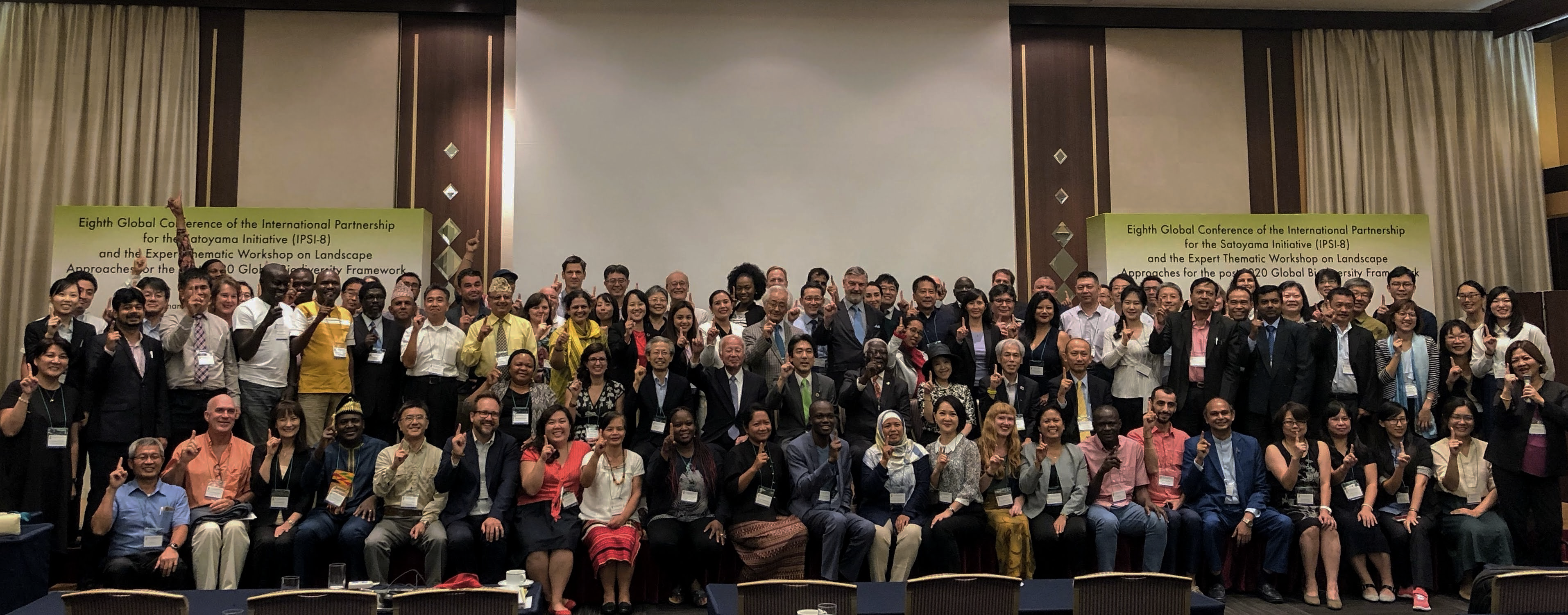On 25 August 2012, Tohoku University and the United Nations University Institute of Advanced Studies (UNU-IAS), in collaboration with other IPSI members including the Ministry of the Environment of Japan, Ink Cartridge Satogaeri Project (Brother, Canon, Hewlett-Packard, Lexmark and Seiko Epson) and CEPA Japan, organised a community dialogue seminar for the Urato Islands (Shiogama City, Miyagi Prefecture), which were severely affected by the earthquake and tsunami of 11 March 2011.
The seminar was attended by more than 40 islanders in addition to representatives from the collaborating organisations and student volunteers from Yamagata University. Two keynote speeches were delivered to introduce how different island communities have managed to overcome the challenges that they were facing in order to revitalize their communities in their own settings, and to help local people in Urato develop ideas about how they want the future of the islands to be.
Mr. Takayoshi Kimura from Okushiri Island gave an in-depth presentation of the kinds of damage the island suffered during the earthquake and tsunami of 1993, which left almost 200 dead. He also presented the different kinds of restoration processes that the community has engaged in since then.
Ms. Arisa Nishigami introduced cases from four different island communities that she has been involved with, including Ieshima Island, where local women established an NGO to promote the island through branding, thereby increasing values of local products. She also talked about Ama Town of Oki Islands, which once suffered from depopulation, but has managed to attract motivated young people with new ideas. She also posed a question to the participants on how they wish their communities to be in the future – whether they want their communities to 1) be further revitalized, 2) maintain the current situation, or 3) disappear as residents move away from the community altogether.
These keynote speeches were followed by an interactive workshop to discuss how they can sustainably restore and revitalize their community and livelihoods nurtured by the unique satoyama/satoumi environment and culture.
During the workshop, with the leadership of Ms. Nishigami, seven small discussion groups were formed, each consisting of local people joined by other stakeholders. Within each group, there was discussion of the following four points:
- Things that they are proud of in their communities;
- Things that they feel anxious about (both before and after the tsunami);
- Ideal future for their communities;
- What each person can do for their communities.
Local people’s views were recorded on flipcharts, and shared with the whole group. Beautiful landscapes and seascapes, strong community bonds built on deep humanity, and tasty local delicacies were among the items at the top of the list of what they are proud of, while people felt anxious about life in temporary housing after the disaster (not only for themselves but also for their neighbours), as well as depopulation especially among the younger generation, which has led to an aging population, local industries in decline (especially fisheries) and a reduction in public services.
Among other things, many islanders expressed that they wish to continue living in harmony with nature, while strengthening a link with cities and attracting more young people by improving services, and branding the islands by making the best use of what they have. In order to achieve such a future, each person offered to take a “small initiative” for the islands, such as sharing their experiences and skills with young people, and teaching how to cook local foods using satoyama/satoumi products to people from outside their communities.
It was suggested that the flipcharts should be reformatted into text, and further translated into a compiled document which is described in “administrative language” in order for the voices to be heard by local governments and other relevant administrative bodies. The seminar was well-received by the participants, and many islanders stated that they would like to continue this type of dialogue to move forward.






SONY DSC



